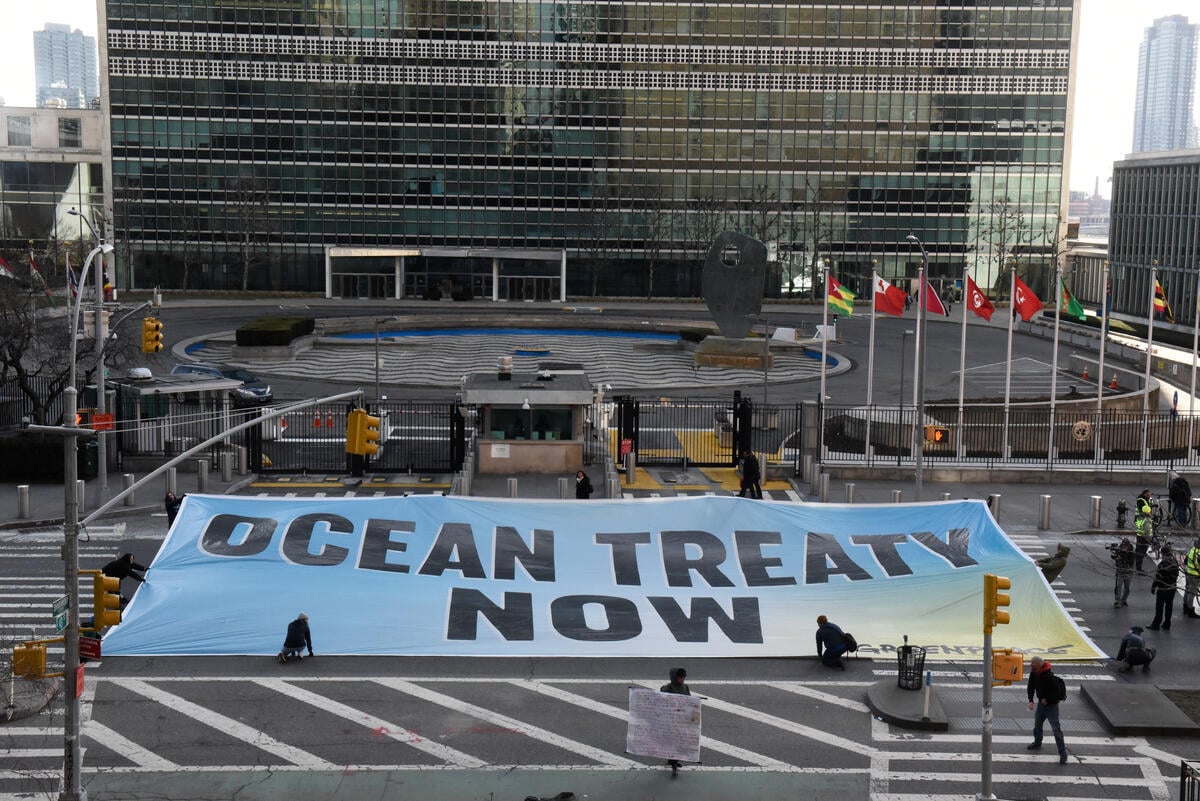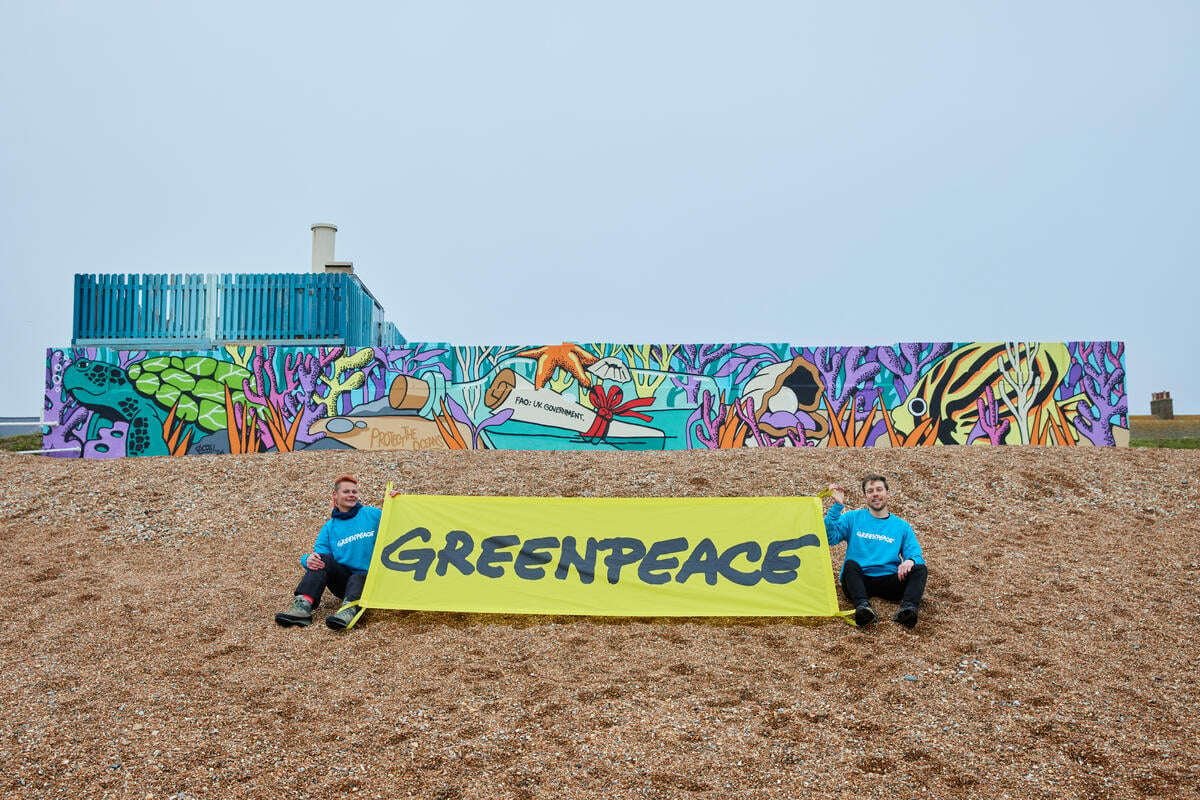Next week, delegations from over 170 governments will meet in Geneva to discuss the necessary steps to curb the plastic pollution crisis. As the final scheduled UN Global Plastics Treaty negotiations approach, the voices supporting and calling for an ambitious Treaty are getting louder. New members from the business community have stepped up to support a binding Treaty that reduces plastic production and use, and drives healthier solutions for people and the planet — offering a clear signal to governments that there’s a business case to securing an ambitious agreement.
Over 450 Champions of Change, and counting
Champions of Change: Business leaders for a strong Global Plastics Treaty, has had dozens of new businesses join over the last two months. This global initiative is a collaboration between Greenpeace International, Break Free From Plastic, and Plastic Pollution Coalition that allows businesses to highlight their support for a Treaty that secures critical measures to address plastic pollution across the full life cycle of plastic, to connect with other leaders, and to collaborate to speak with one powerful voice for change. As of today, over 450 businesses from 32 countries and regions joined Champions of Change by signing an open letter urging governments to support an ambitious Treaty. From zero waste stores to financial institutions, to cosmetics brands, beverage companies, and sports wear brands, people are realizing that mounting plastic waste and pollution is everyone’s problem and no business or operation is free from either direct or indirect negative impacts.
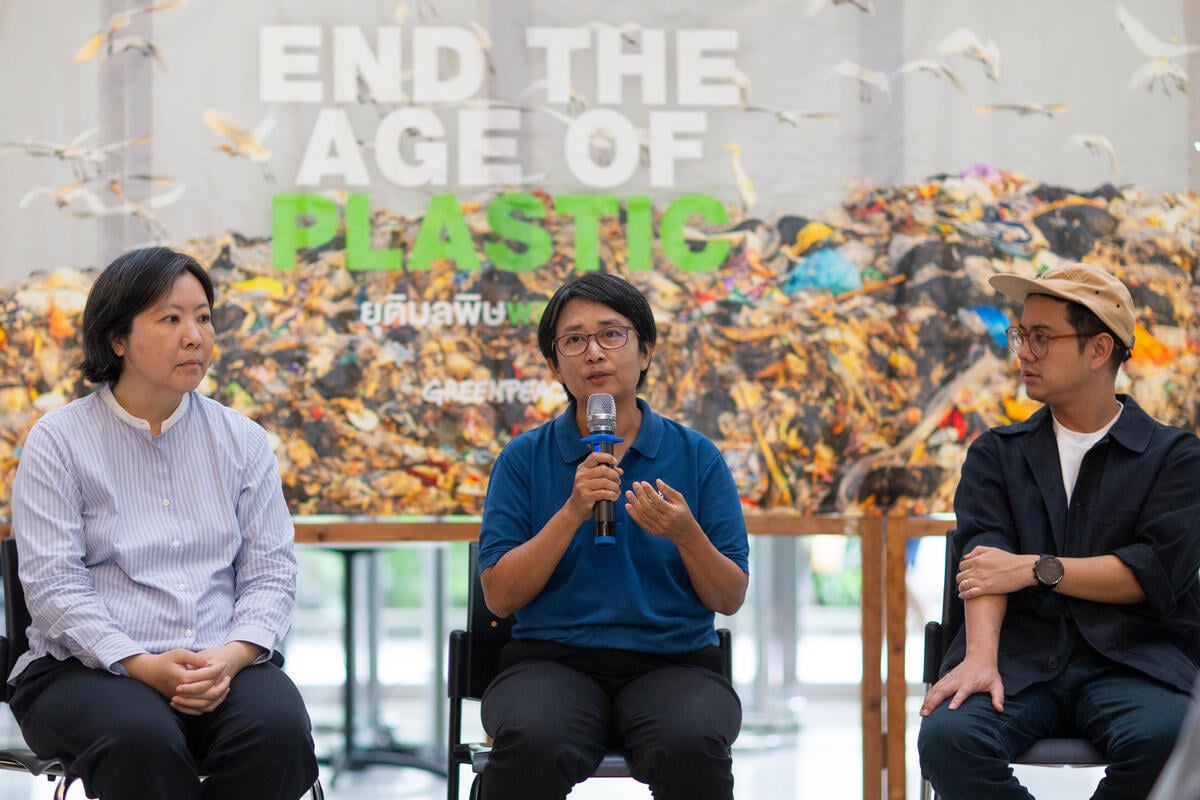
Various businesses have come to realize that becoming more involved in the Treaty process and advocating for a strong Treaty presents an opportunity to engage directly with governments, share learnings with like minded businesses, and be part of the discussions on bold yet viable solutions and how the Treaty can help create the conditions to make them more doable and even profitable.
Big brands weigh in
This surge in Champions of Change sign-ups comes on the heels of renewed support for an ambitious legally binding Treaty by The Business Coalition for a Global Plastics Treaty – a group of over 250 businesses from across the plastics value chain and financial institutions, convened by the Ellen MacArthur Foundation and WWF. In June, over 90 member states at the United Nations Ocean Conference signed the ministerial declaration “The Nice wake up call for an ambitious plastics treaty”, which includes a call for the adoption of a global target to reduce the production and consumption of plastic along other key measures to be discussed. The Business Coalition officially welcomed the declaration, lending its support for what it called a “timely and critical signal” in advance of Geneva. The world’s largest consumer goods brands recognizing the need for a global agreement reflects the mounting support by their customers, the wider public and backed by the scientific community, Indigenous peoples, frontline and other impacted groups, and health professionals, urging world leaders to end the age of plastic.
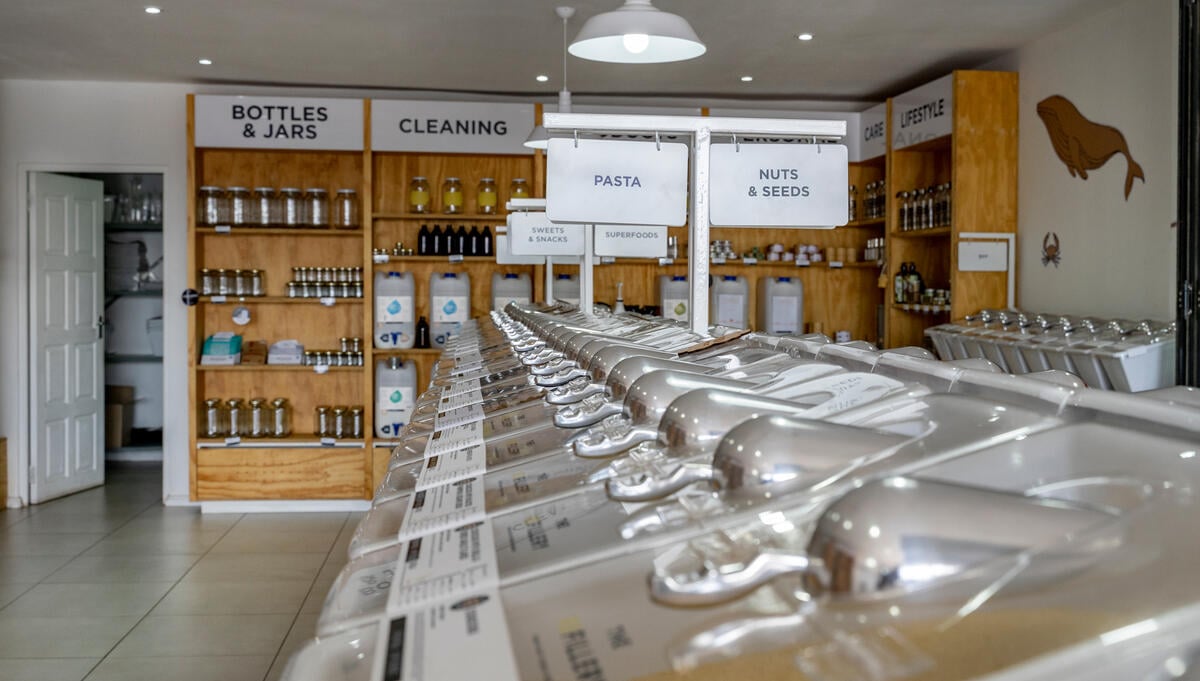
A strong Treaty will make change faster and easier
Many of the Champion of Change members are reuse-refill and zero waste-centred businesses and service providers that have been paving the way in all corners of the world — building, expanding, refining and maintaining systems that dispel the myth that we need plastic-based take-make-waste model to make the world go round. They offer real world examples of solutions in action, and realise that a strong Treaty is critically important to developing them at scale and normalizing them across sectors.
We’ve also seen countless larger businesses and global brands launch reuse and refill pilot programs; however, until governments agree on global, binding rules to level the playing field and not only incentivize but require zero waste models over single-use and problematic plastic ones, these voluntary initiatives will fail to be scaled.
Collaboration is key
In addition to the small and medium businesses and initiatives leading innovation and the reuse revolution, we are seeing some multi-brand, multi-stakeholder projects that offer hope and a taste for what a more collaborative and successful approach could look like. One example is a newly announced Ottawa-based reuse project that brings together major brands and retailers on a packaging-as-service model for personal care and home care products. The Consumer Goods Forum (CGF)’s Plastic Waste Coalition of Action and Reposit – a leader in reuse and returnable packaging platforms, have completed the first phase, with support from various levels of government. This type of collaborative reuse initiative has the potential to be precedent-setting, with real possibility for scaling and replication across other product categories and sectors. And it also can offer learnings to be applied to how government and industry can improve uptake and accessibility of zero waste, reuse and plastic-free solutions as we globally chart a new course. But once again, piecemeal national and regional regulations and limited collaboration to date means these projects face unnecessary barriers to success. A Treaty can and must change that, and businesses offering examples of new systems in real time is important to guide thinking as governments come to the table.
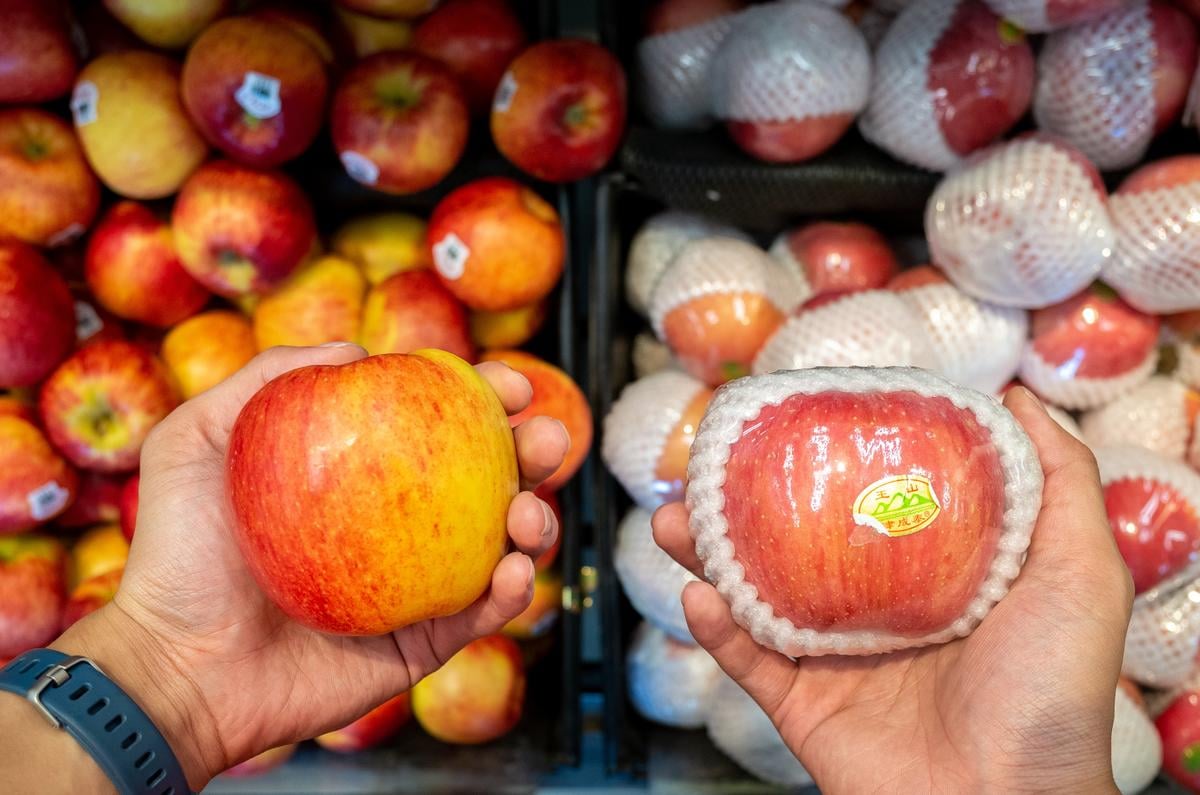
From Plastic Free July to Plastic Free Future
And as Plastic Free July wraps up for another year, we are reminded of the scale of the plastic problem, the vast array of zero waste solutions already available, and how far we still need to go before a true and collective shift away from our over-reliance on plastic is underway.
What has become increasingly clear since the Plastic Free July movement began back in 2011, is that plastic pollution is not only threatening the health of the planet’s ecosystems, but it’s become a public health emergency. People are increasingly exposed to microplastics and harmful chemicals present and used in plastic products from packaging to home goods, kitchenware, to clothing and beyond. Making plastic-free alternatives more accessible to people is a critical step towards eliminating harmful and unnecessary plastics from our daily lives. And we know we cannot do any of that unless we stem the relentless flow of plastic that is flooding the markets, our shopping carts, our communities, and the natural world.
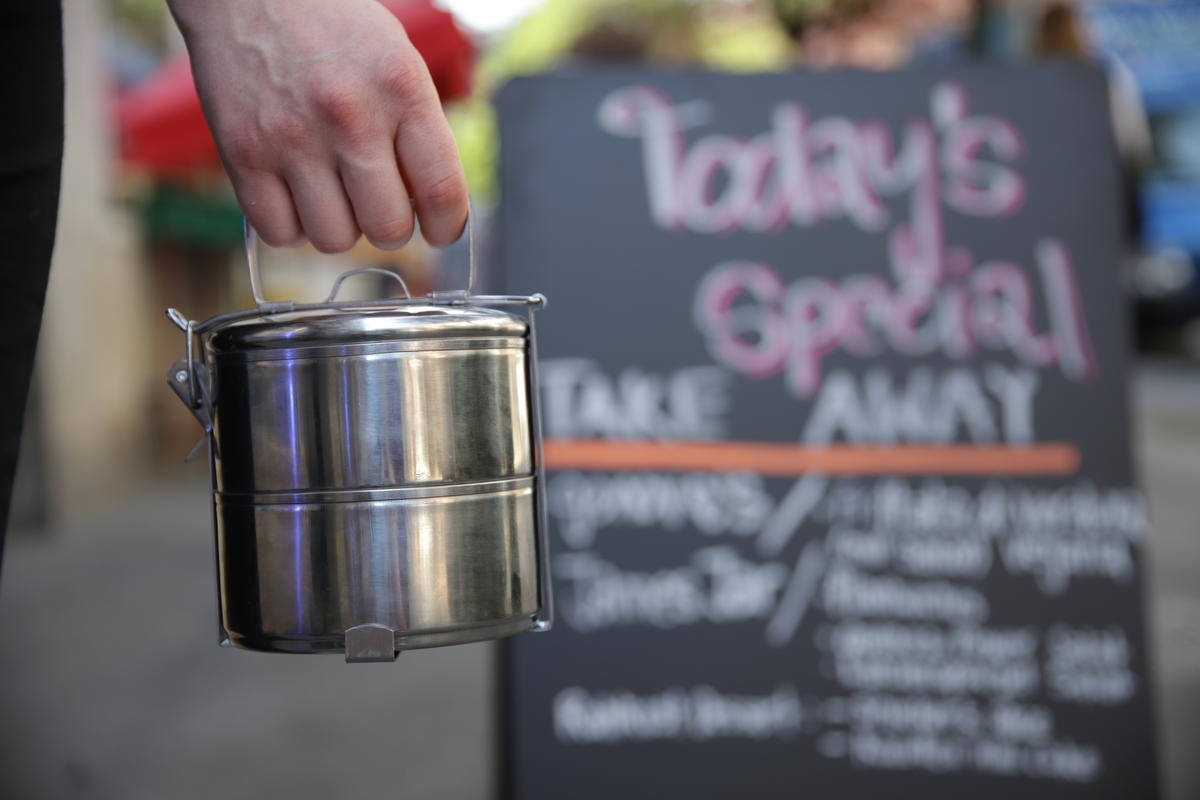
Join the call for a strong Treaty!
If you are concerned about the impacts of the plastic waste and pollution crisis on your business or service, or the threats to human and planetary health, join Champions of Change. From showing support via your social media channels, to raising awareness among customers, to connecting with government officials, there are various ways that new Champion of Change members will be able to join the call to action, even with only one week to go before the talks begin. Sign our open letter, add your voice, and help hold governments to account at INC5.2 and beyond. The time for action is now. Be a Champion for a healthier, zero waste future.
Sarah King is the Senior Subject Matter Strategist for Oceans, Plastics & Biodiversity at Greenpeace Canada

